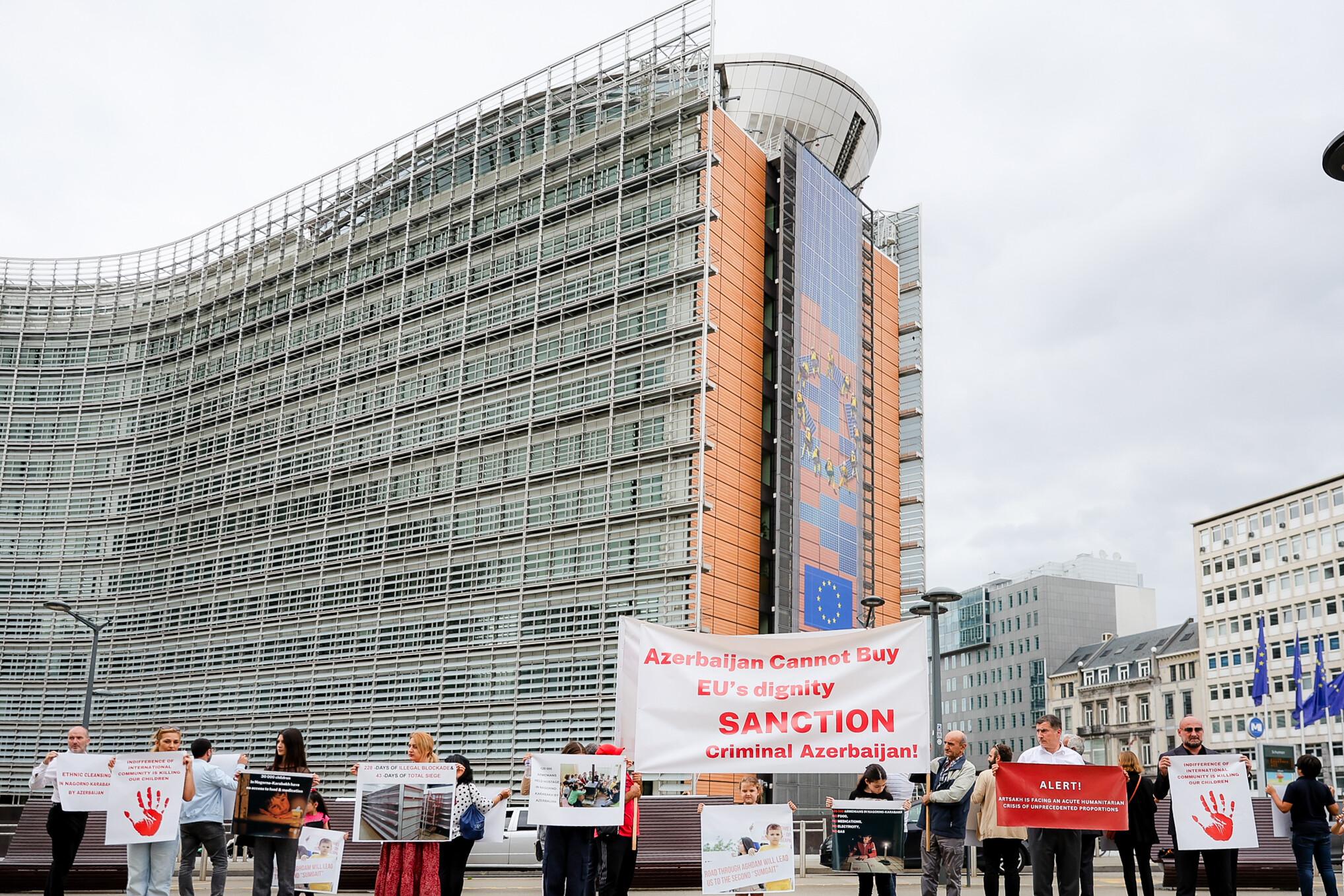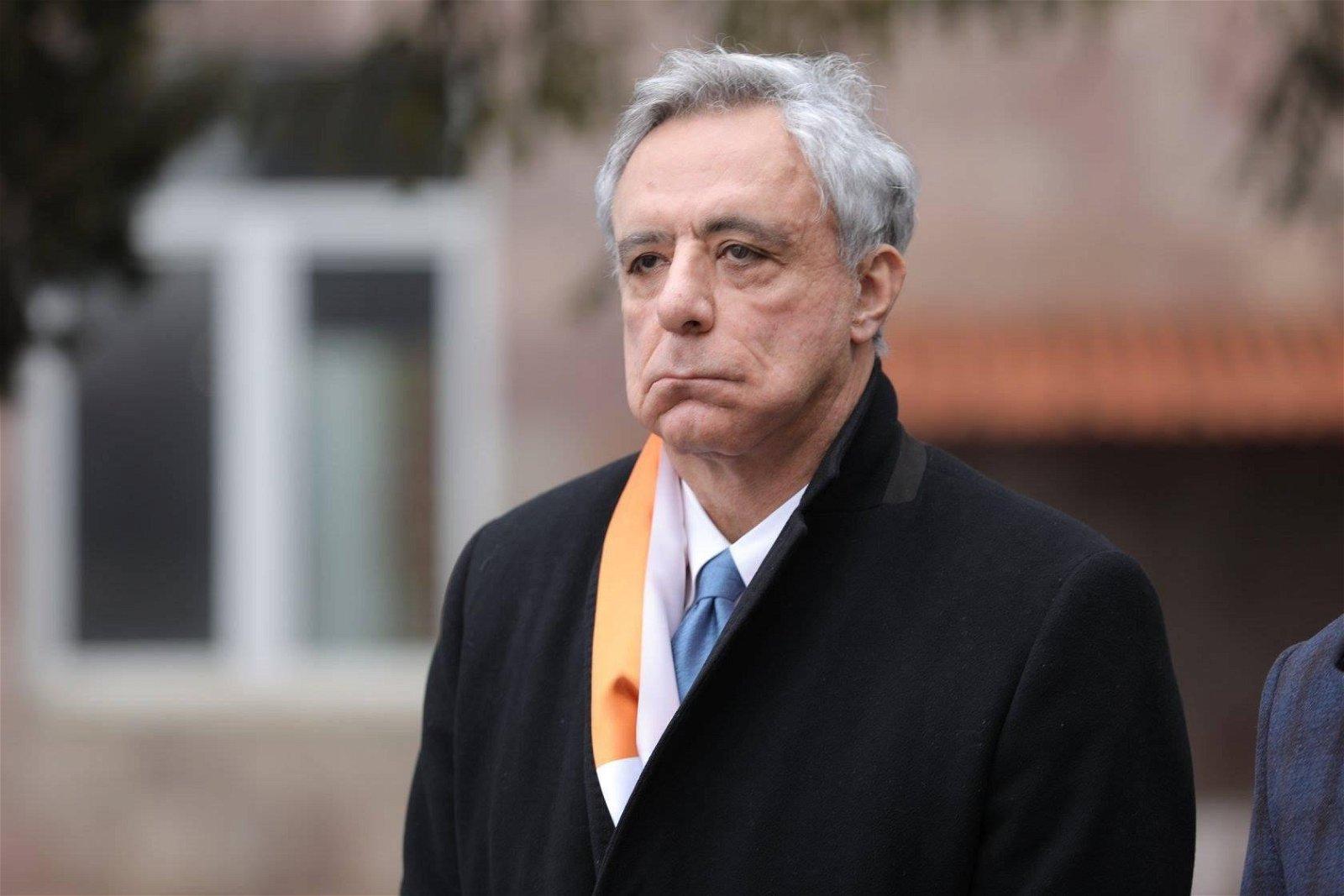Armenian diaspora stirs up Europe against Azerbaijan Baku did not shut the doors on Karabakh Armenians
In the wake of the full restoration of Azerbaijan's territorial integrity and sovereignty, the world Armenian community has significantly stepped up the lies and accusations against Baku in a vain attempt to convince the international community of the "ethnic cleansing" of the Armenians of the Karabakh region. Thus, last week (January 27-28), supported by the Armenian Diaspora, rallies were held in 50 European cities to back the self-dissolved puppet entity in Karabakh.
Armenian media, citing the Dashnaktsutyun party, reported that the "Europeans for Artsakh" movement organised the second pan-European rally in support of Karabakh. The first such rally was held in Brussels and 13 European cities in October last year.
Thus, the list of demands of the "Europeans for Artsakh" movement to the European countries included the demand for "support for the forcibly displaced Karabakh Armenians and international security guarantees for their return to Karabakh", in addition to the traditional accusations of the world Armenian community against "Baku's genocidal policy".

Lest we be unfounded, we would like to point out that neither the UN and ICRC missions nor the numerous journalists and international experts who visited Karabakh after the anti-terrorist operations of a local nature, found any acts of violence against Karabakh Armenians. Moreover, the UN representatives noted in their report that "in the parts of the city visited by the team, they saw no damage to civilian public infrastructure, including hospitals, schools and residential buildings, as well as cultural and religious infrastructure".
In other words, not a single fact was found to confirm the Armenian propaganda accusations against Azerbaijan. What could Baku do if the Armenians living illegally in Karabakh decided to move en masse to Armenia? The Armenians left Karabakh voluntarily. They made their own choice. They left in their own cars and in specially allocated transport. And this is very different from the way Azerbaijanis left Karabakh 30 years ago. They often left in a hurry, jumping into clothes, under the fire of Armenian artillery.
Moreover, as a result of the one-day anti-terrorist operation on September 19-20, Azerbaijan fired only at legitimate military targets. Civilian casualties were avoided.
However, Western politicians and media bribed by the Armenian diaspora are trying to present the voluntary resettlement of Armenians from Azerbaijan to Armenia to deal a blow to Baku's image. It is worth repeating that the resettlement of Armenians from Karabakh to Armenia was not an end in itself for Azerbaijan.
On the contrary, they were offered at the highest level and on more than one occasion to take Azerbaijani citizenship and stay in their homes. In December last year, President Ilham Aliyev, in an interview with the Euronews television channel, stressed that Armenians wishing to live in Karabakh should apply for Azerbaijani citizenship.
"All those who want to return have the right to do so. Their property will be properly protected. All historical and religious sites will be properly protected. In order to return, they must follow certain rules. I spoke about this many months before the anti-terror operation began. Those who want to stay must apply for Azerbaijani citizenship," Aliyev said.
The decision to leave Azerbaijan was their own, he added.
"Our public communication with the Karabakh Armenians and what we did afterwards showed that we wanted them to stay. We said so openly. And in my address to the Azerbaijani people after the end of the anti-terrorist operation, I said that they can stay," the head of state stressed.
But what do we see today? The hackneyed theme of the "return of Armenians to Karabakh" is part of a revanchist plan hatched by certain forces in Armenia with the support of the Diaspora. This is confirmed by the recently established "Commission for the Return of Karabakh Armenians" in Armenia, headed by former Foreign Minister Vardan Oskanian, who is closely linked to the Karabakh clan.
In this context, it is not surprising that Oskanian's commission includes representatives of the Dashnaktsutyun party. The former minister himself has repeatedly made provocative statements that Armenians could return to Karabakh on condition of "special status or the right to self-determination".

Incidentally, while the diaspora, the Karabakh clan and forces close to them are running around Europe demanding measures for the "return of Armenians to Karabakh", the Armenian authorities themselves are no longer raising this issue. Thus, in November 2023, Armenian Prime Minister Nikol Pashinyan, answering questions from citizens in a live broadcast, openly stated that he considered the return of Armenians to Karabakh impossible.
At the same time, he promised that the government would do everything to ensure that the Armenians of Karabakh remained in Armenia and did not emigrate. Pashinyan's statements show that the issue of the return of Armenians to Nagorno-Karabakh is indeed closed at the government level.
Not because Yerevan does not want them to return, but because Baku, for its part, is demanding that the right of return of hundreds of thousands of Azerbaijanis who were expelled from Armenia in 1987-1988 be guaranteed in parallel with this process. This is why the Armenian leadership avoids discussing this issue.
It is noteworthy that while the Armenian diaspora all over the world is holding rallies in support of the Karabakh Armenians, the society in Armenia itself is already openly demonstrating its aversion to the "newcomers". In Yerevan, Karabakh Armenians are becoming more and more blamed and accused by the local population: "Why did you come here after laying down your arms and surrendering?"
Judging by the information provided by the Yerevan media, Karabakh Armenians in Armenia have already become real outcasts, despised and scorned. But the revanchists and those in the diaspora are keeping silent about it. Understandably, it is easier (and more profitable) to slander Baku than to expose discord and sectionalism in their ranks.








